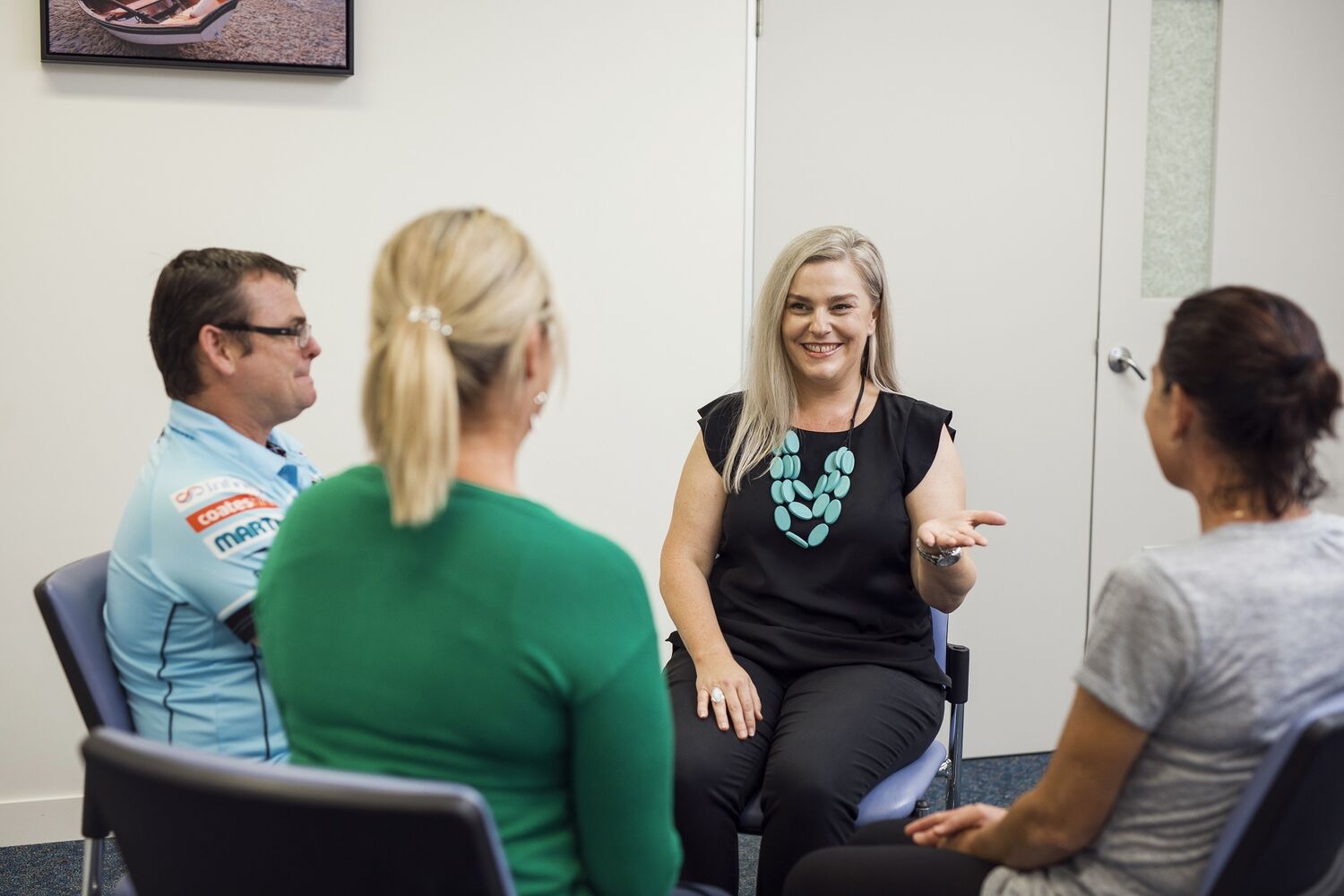Dual Diagnosis Outpatient Program
Robina Private Hospital’s Dual Diagnosis Outpatient Program was launched in November 2021 to support patients with addiction and mental health concerns. The program is based on Cognitive and Behavioural Therapy (CBT) principles as well as use of Dialectical Behaviour Therapy (DBT) skills.
There has been a strong demand for the program since the launch with consistent patient attendance rates and positive feedback from group members.
A safe and supportive space for members
Group members have reported enjoying attending the program on Mondays, as they feel it sets them up positively for the start of the week. The group provides a supportive environment that allows members to share amongst their program community their triggers, challenges and experiences. Group members are able to feel less isolated sharing with like-minded individuals who can listen without judgement and help provide a safe space to share their struggles with addiction.
A flexible program that can cater for different stages
The program is able to cater for group members that are at different stages in their recovery, providing the opportunity for patients to personalise their experiences, cultivating awareness and understanding of self. Not all patients who attend group are abstinent, which initiates regular discussions around harm minimisation, supporting group members with their goals, and working towards abstinence from alcohol, drugs, or their addictive behaviours.
Clinical support and early intervention
Clinical support within the program provides the opportunity for early intervention to occur, such as when a patient relapses, or when there are risks relating to the safety of the patient. These moments of early intervention are crucial for patients. Psychoeducation and reflection can encourage the deconstruction of what patients’ can learn from their relapse and recognise their triggers. This provides the awareness for patients to begin to reconstruct what they can do differently next time, rather than seeing themselves as a failure.
Emotional mindfulness
Another component of the group is ‘emotional mindfulness’, allowing patients to become more aware and gently connect with themselves. Everyone is evolving at their own pace; it is an individual journey, but not without hard work.
It has been lovely to watch patients evolve in the group so much so that at the beginning of the group cycle, some patients could only engage in 5 minutes of mindfulness. In comparison to recently with all group members engaging successfully in 15 minutes of mindfulness.
The feedback from members is they are frequently drawing on their mindfulness skills and developing greater emotional self-awareness. This is a great example of patients developing new skills and applying them in the real world.
For enquiries about our program, please contact us on 07 5665 5100.
Author Nikki Campbell
Nikki graduated with masters in social work in 2021 with over 10 years of field experience.
